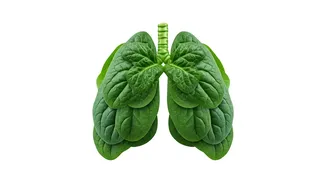Dairy's Potential Downsides
Dairy products, while a staple for many, can potentially cause challenges for respiratory health. Several individuals have mentioned that consuming dairy
might lead to an increase in mucus production. Increased mucus could, in turn, make breathing harder, especially for people with existing respiratory conditions. It's essential to recognize that not everyone reacts the same way. The impact can differ significantly depending on the person. This is due to individual sensitivities and overall health factors. Those who experience worsened breathing after consuming dairy might want to consider limiting its intake or exploring alternatives like plant-based milk products to see if their condition improves.
Processed Food Concerns
Processed foods often contain a multitude of additives and preservatives, several of which have the potential to trigger inflammation in the body. When the body faces inflammation, this can extend to the airways, potentially causing irritation and swelling. This makes it more difficult for air to move freely in and out of the lungs. Frequently, processed foods are high in saturated and trans fats. Diets abundant in these fats have been linked to an increased risk of chronic diseases, including conditions that adversely affect lung function. Being mindful of labels, and opting for whole, unprocessed foods can be a helpful step in protecting respiratory health. Preparing meals at home gives you more control over the ingredients used.
Sugar's Inflammatory Role
Excessive sugar consumption can fuel inflammation throughout the body. Similar to the effects of processed foods, this inflammation may impact the airways, leading to constriction and increased difficulty breathing. The constant intake of sugary foods and drinks can also weaken the immune system. A compromised immune system makes the lungs more vulnerable to infections. This can result in further respiratory problems. The focus should be on limiting added sugars found in sodas, candies, and many processed foods. Natural sugars from fruits, in moderation, offer both nutrients and fiber. This is preferable to the highly refined sugars that lack nutritional value.
Salty Food Impacts
A diet that is high in sodium can lead to water retention within the body. This fluid retention can contribute to swelling, which may affect the airways and impede breathing efficiency. Individuals with certain respiratory conditions, like asthma or COPD, might find that a high-sodium diet exacerbates their symptoms. Furthermore, excessive salt intake can increase blood pressure, which, over time, can damage the heart and other organs. These damaged organs can indirectly affect lung health. Cutting back on sodium means being vigilant about checking nutrition labels. It also means minimizing processed foods. Fresh, whole foods naturally have lower sodium levels.
Fried Food's Troubles
Fried foods are usually cooked in oils that can produce harmful compounds when heated to high temperatures. These compounds can be inhaled during the cooking process and may irritate the lungs. Furthermore, these foods are often high in unhealthy fats. This can worsen inflammation in the body. Fried foods tend to be heavy and hard to digest. This may also cause acid reflux, which can cause irritation of the airways. The solution involves reducing the intake of fried foods and choosing healthier cooking methods such as baking, grilling, or steaming, which preserve the nutritional value of foods without the negative impact on the lungs.
Alcohol and Lungs
Alcohol can lead to inflammation and weaken the immune system, making the lungs more susceptible to infection. Regular alcohol consumption can impair the tiny hairs (cilia) that line the airways, which are responsible for clearing mucus and debris. With impaired cilia function, the lungs become less able to defend against irritants. The impact of alcohol varies depending on the amount consumed and individual health factors. For those with respiratory conditions, it is particularly crucial to moderate or avoid alcohol altogether. This will help maintain optimal lung function and overall health.
Red Meat and Health
Consuming a lot of red meat might indirectly harm the lungs. Diets high in red meat can elevate the risk of inflammation and often lack the fiber found in plant-based foods. Diets lacking in fiber can be detrimental to overall health. For those prone to respiratory issues, such as those with asthma, limiting the amount of red meat consumed might be beneficial. Instead, incorporating lean proteins, such as poultry or fish, and increasing the intake of fruits, vegetables, and whole grains is a healthier approach. Prioritizing a balanced diet supports both lung health and the immune system.















